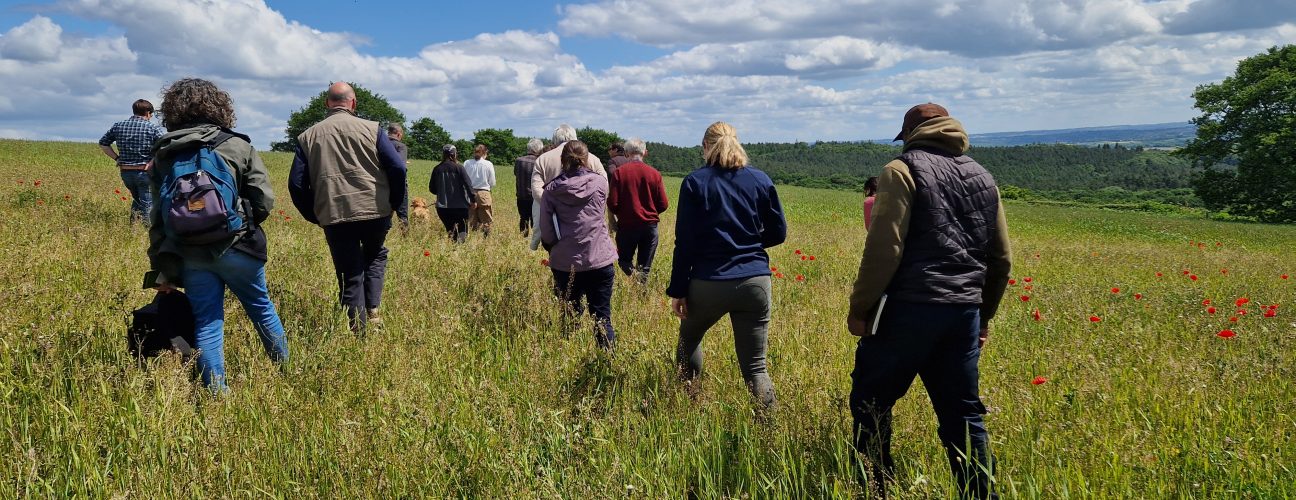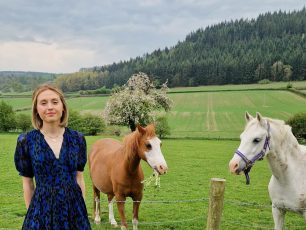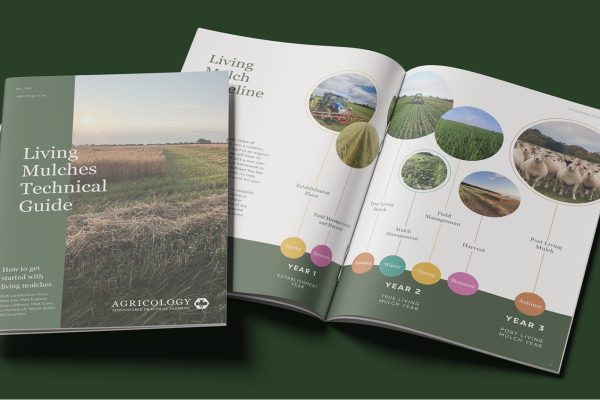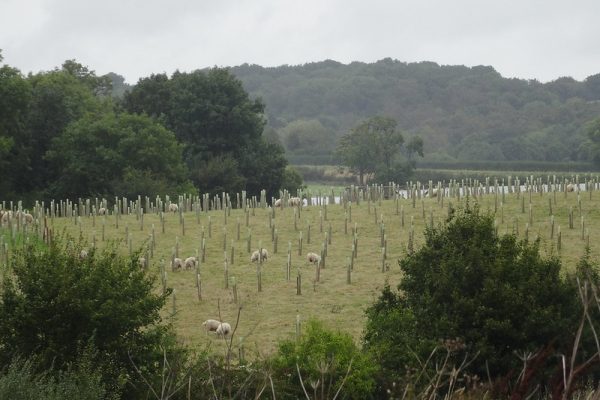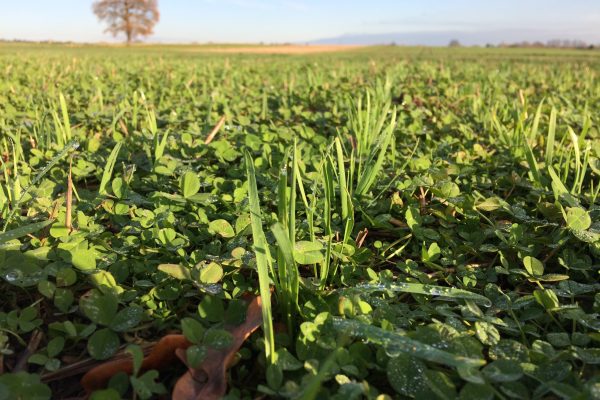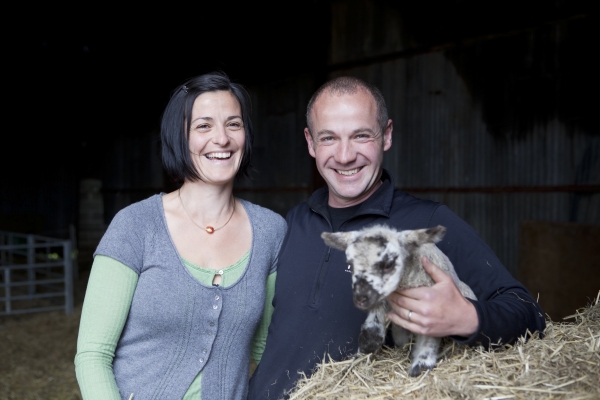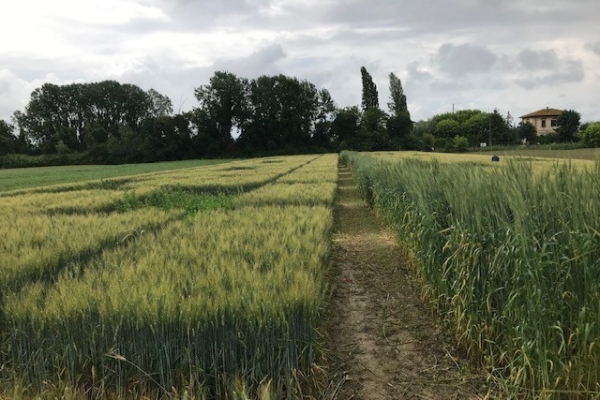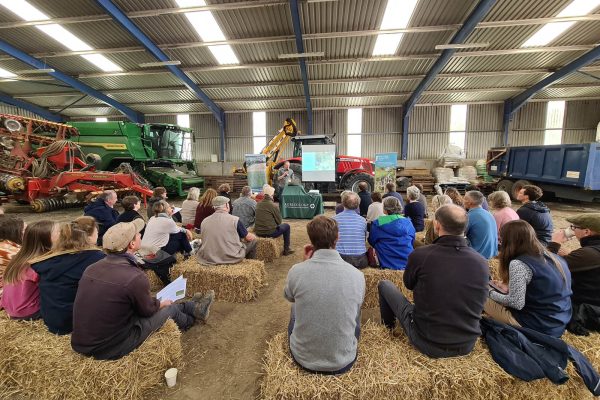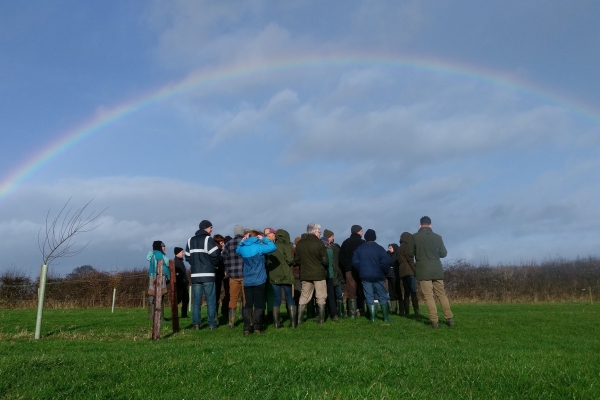Beyond the Label: Exploring Resilient and Regenerative Organic Agriculture at Fraser Farms
On Monday the 2nd June, Agricology held a thought-provoking event in Yorkshire hosted by first-generation farmers Hannah and Alex Fraser and agroecologist and farmer Jonty Brunyee. The day explored both practical and pertinent aspects of regenerative agriculture, touching on topics ranging from soil health, biodiversity, sustainable livestock and agroforestry to broader food system transformation.
Our location for the day was the beautiful Denby Hall Farm, a 450-acre organic farm situated between Holmfirth and Barnsley. Attendees were welcomed with coffee and a delicious selection of homemade cakes and biscuits, served in a light-filled converted barn adjacent to the main farmhouse. The group was made up of a diverse mix of farmers, growers, retailers, researchers and advisors from across the UK, with experience and expertise spanning the entirety of the food system.
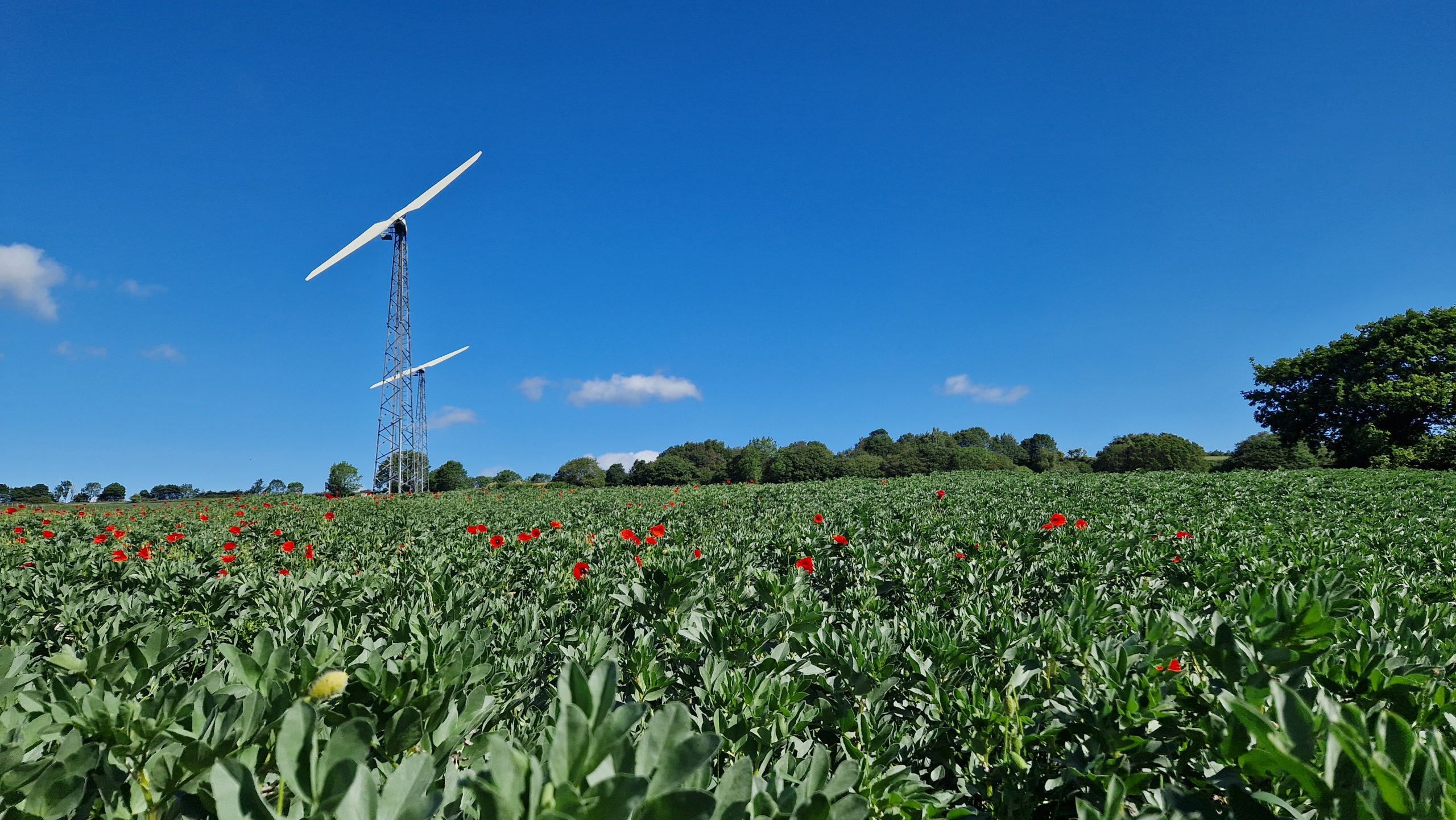
We began the morning with an introduction from Jonty Brunyee, whose experience includes hands-on farming, research and education. During his talk, Jonty claimed that “regenerative agriculture needs reframing”, encouraging the group to move beyond the buzzwords that have hindered this term in recent years in due to overuse and misappropriation. Jonty instead advocated for the concept of ‘deep regen’ as a way of going beyond tokenistic gestures and truly implementing a holistic and transformative approach to the way we produce food and steward the land. He outlined the key principles of this concept, which include minimising soil disturbance, focusing on diversity, the use of cover crops and integration of grazing livestock. Jonty also stressed the importance of valuing your unique context, acknowledging that every farm and farmer is different.
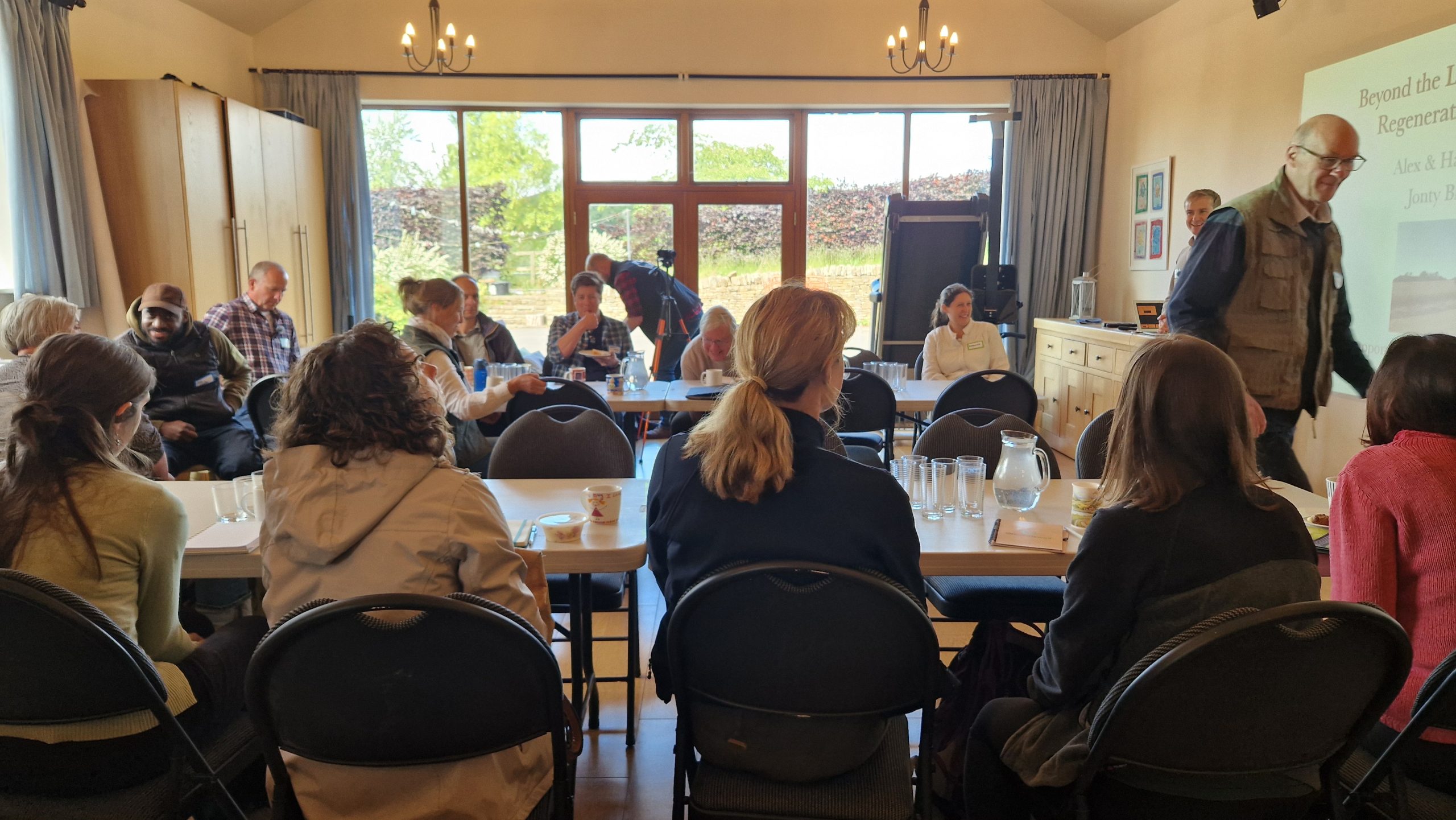
Alex Fraser was next to speak, sharing with attendees his professional journey from doctor to full-time farmer. Alex explained how he met his now-wife Hannah at medical school in Edinburgh where they both developed a keen interest in public health, becoming aware of how both dietary choices and the quality of food available affected the wellbeing of their patients. After qualifying, Alex and Hannah made the decision to return home to Yorkshire and take on the management of Denby Hall Farm in 2018, with the goal of undertaking organic conversion and rehabilitating the land to provide a source of sustainable and nutritious food for local people. The site now supports arable crop production (providing a source of grain for surrounding bakeries), agroforestry areas, herbal leys, hedgerows, ponds and wetland zones.
The second part of the day comprised of a farm tour. The sunny weather provided perfect conditions to explore the fields and lanes on foot, with the company of the Fraser’s dog Willow. We began in the living mulch trial fields, where the Organic Research Centre’s Principal Researcher Charlotte Bickler was on hand to help explain how the impact of different understories was being studied on the site through grounded scientific enquiry. The Frasers showed us how they are assessing the benefits and drawbacks of red and white clover, black medick and trefoil with regards to yield and soil health when grown alongside a landrace population wheat. Alex and Hannah were keen to stress that establishment of the living mulch is critical, alongside the importance of finding the delicate balance between competition and weed suppression.
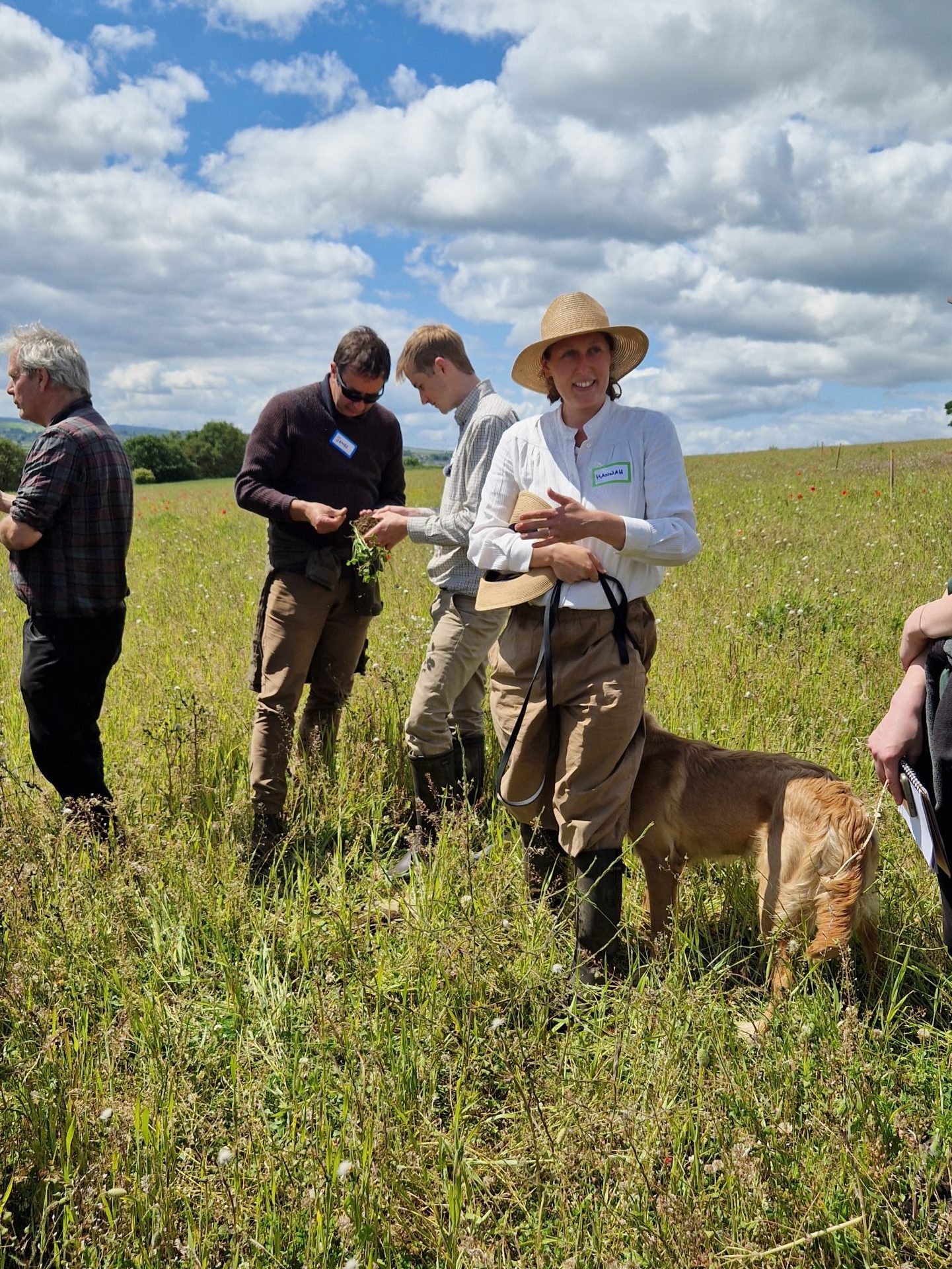
In the agroforestry field we saw first-hand how the recently planted trees are already having an effect on biodiversity and soil health, providing a source of shelter alongside water and nutrient management benefits. The British hardwood species that were selected for the alleyway design include alder, sycamore and sweet chestnut, each possessing unique attributes including the ability to fix nitrogen and reduce evapotranspiration. The Frasers explained how they plan to eventually make use of the wood on-farm, for example in fence post construction.
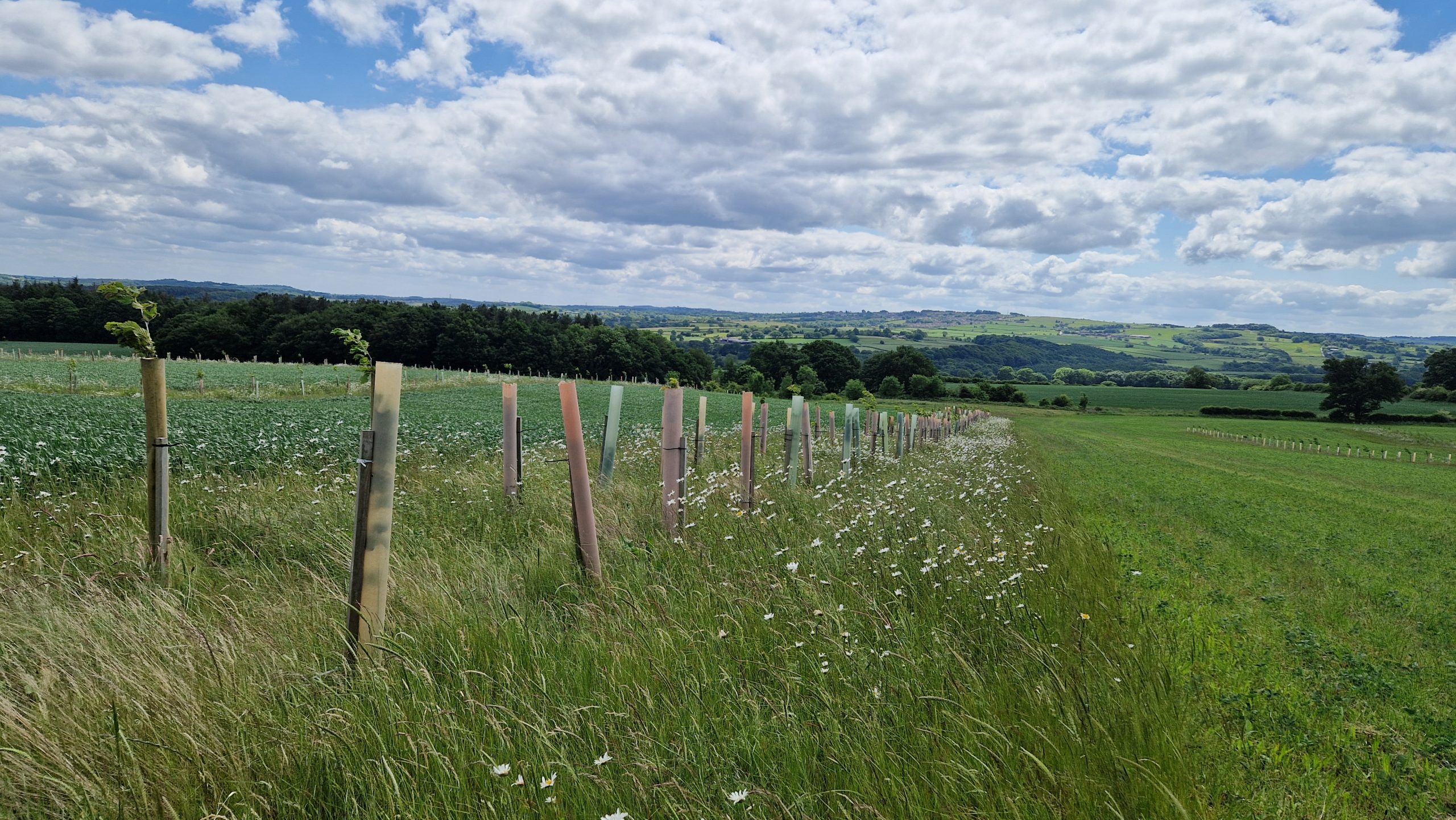
The day concluded with a wholesome and tasty shared lunch, featuring more homemade dishes. These included a colourful array of salads, breads, quiches, and cheeses sourced from the farm and other local producers. After the meal we had a chance to reflect on our key take-aways from the event and think about how we might use these learnings going forward. A common thread in the discussion was concern over the growing disconnect between consumers and farmers, and how this gap affects understanding of soil health, nutritional density, and the true cost of sustainable food.
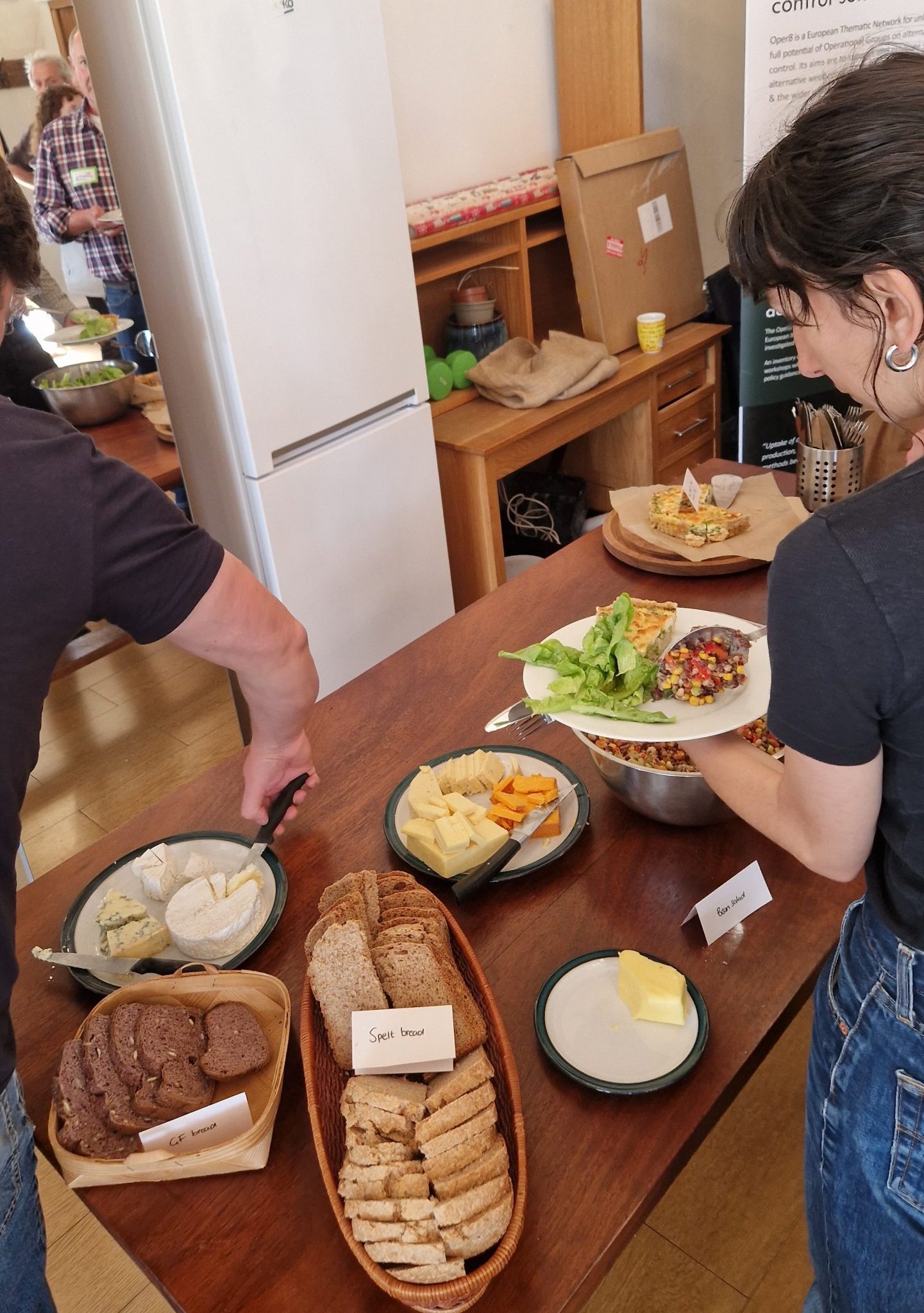
Seven years into their journey, the Frasers are a brilliant example of what’s possible when agroecological principles are matched with hard work, determination, innovation, and a commitment to iterative learning. You will soon be able to read about their journey and track the progress of their living mulch trials in particular via an Agricology farmer profile we have been working on with them, so watch this space! Days like this provide a fantastic opportunity to spark conversation and facilitate connection around sustainable practices within the farming community. If you are interested in learning from others through sharing knowledge and practical advice, please join us at a future Agricology event.
